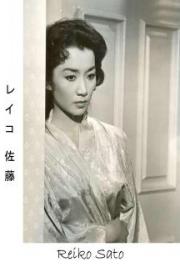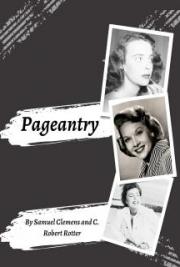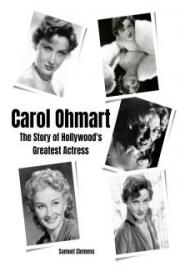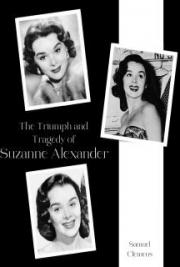Some General Points
Although I have objected to some of the inferences drawn by others, nevertheless it seems to me that from the facts viewed in their new relations, some legitimate inferences may be drawn. In the first place it seems almost certain that by 1386 Chaucer held considerable land in Kent. Every other man on the list of Justices of the Peace (with the single possible exception of Topclyff) held fairly extensive lands in the county; all except de Burley, Topclyff and Chaucer were of old Kentish families. De Burley's importance as Constable of Dover (indeed he undoubtedly held the office of Justice ex officio) and Topclyffs position as steward of the Archbishop of Canterbury counterbalanced the fact that they were not of Kentish stock. What then of Chaucer? He surely must have held a manor and lands of considerable value or he could never have been high enough in the estimation of the landed proprietors to gain the Justiceship and even the membership to Parliament. Now, he apparently did not receive this land by royal grant; consequently it would appear that he must have had it by grant of some great noble or by purchase. In any case we have no record to indicate what land he held or by what tenure he held it.
Again we do not know what Chaucer's income as controller of the customs amounted to. It is apparent, however, that the returns from the office of controller of the greater custom must have been very considerable. If the collectorship of the customs was not a profitable office, it is impossible to see why such men as Walworth, Philipot, and Brembre should have cared to hold it. That the twenty pounds which was their nominal salary was anything like all that they received is unbelievable. To suppose that a man who could fit out a fleet at his own expense and successfully campaign with it against a powerful pirate, should allow himself to be annoyed by so paltry an office is absurd. Yet the office was apparently not farmed, and so it seems likely that the income from fees was large and attractive. [Footnote: The View of W. D. Chester: Chronicles of the Custom's Dept., p. 30.] To how great an extent Chaucer, aside from the ten pounds yearly that he received, shared in the profits, we do not know. From the fact that the King in giving the collectors and the controller extra rewards seems to have rated the latter at about a third of the importance of the former, we might get some hint of the proportion in which he would share in the fees.
Chaucerian scholars have laid great stress upon the grant of permission to Chaucer in 1385 to appoint a permanent deputy in his office in the greater customs. They have even assumed that the L. G. W. was dedicated to the queen out of gratitude for her supposed intercession with the king, and the consequent permission, and have used these suppositions as evidence for dating L. G. W. Surely too much has been made of this matter. Not only have we no evidence whatever to connect Queen Anne with the granting of the deputyship; we do not have to assume any intercession with the king. [Footnote: See forthcoming article: Chaucer and the Earl of Oxford, in Modern Philology.] We know that esquires who were granted offices in the customs frequently did have deputies in their offices; [Footnote: Of. cases of John de Herlyng, Helming Leget, John Hermesthorpe et al.] probably leave to have a deputy could be had almost for the asking. Moreover, the office of controller, if we can judge from the records of Chaucer's time (cf. Mr. Kirk's print in the Chaucer Society--not yet issued) could not have been a very burdensome one. Yet even the provision that Chaucer write the records with his own hand was not--in the opinion of the officials of the Record Office--held to even as early as 1381. The reason for this judgment is that the preserved records are written in a decidedly good Chancery hand, a style of writing which only a professional Chancery clerk is supposed to have been master of. [Footnote: See Tales of the Canterbury Pilgrims, Stokes & Co., Intro., by Furnivall, p. X note.] Consequently either Chaucer must have been a regular Chancery clerk, or he employed a clerk to write up the records. If he did the latter--as seems most likely--it is hard to see what work of importance can have been left to himself. Why then should he care for a permanent deputy? If we look at the circumstances of his life in 1385, we may discover a possible reason. In that year, he first appears prominently in connection with Kent. The sequence of events is:
February, 1385--deputy appointed.
October, 1385-Justice of the Peace in Kent.
June, 1386--Justice of the Peace in Kent.
August, 1386--Member of Parliament for Kent.
He must have been out of London at latest some time early in 1385, and he may have been occupied with the purchase and management of whatever land he possessed in Kent, and with the politics of that county. Consequently, he may have desired to have a recognized deputy in the office who would relieve him of all official responsibility. One can see no reason why he should have felt particularly grateful for the grant of this merely technical freedom.
Furthermore we can have no knowledge, with our present information alone, of why Chaucer ceased to be controller at the end of 1386. I have already shown that this could not have been due to John of Gaunt's absence from England. It is almost equally certain that it was not due to the fact that Chaucer was a partisan of the King or that the council of thirteen was instructed to inquire into the conduct of the King's offices and to initiate reforms. [Footnote: As Colton in his book on Chaucer's England assumes, pp. 58-59.] The proof of those statements is this: so far as we know Chaucer's only fault in the conduct of these offices was the fact that he "performed" them by deputy; now, although the two offices were granted in December to Adam Yardley [Footnote: Adam Yard&y, clericus, was in 1383 joined with a sergeant at arms to take and arrest mariners for the passage of the Bishop of Norwich across the channel. This would suggest that he was connected in some way with the court, since such duties were commonly assigned to esquires and clerks of the court.]--and Henry Gisorz, [Footnote: Henry Gisors seems to have come from an eminent London family. (Riley Memorials pp. 74, 185. Ancient Deeds; A 7833. Maitland History of London, p. 825). In 11 Richard II and 16 Richard II he was concerned with John Hermesthorpe in certain transfers of land in London. (Ancient Deeds; B 2118, 2121).] the controllership of the greater custom was re-granted scarcely six months later to John Hermesthorpe [Footnote: John Hermesthorpe was a very much more important person. He was for some years one of the chamberlains of the King's exchequer, probably as early as 1370 when on one day he conveyed payments of their annuities to Philippa Chaucer and three other damsels of the queen. He was likewise ft priest, for a time confessor to the King, and holder of various ecclesiastical preferments, in London and elsewhere. He was in particular Master of the Hospital of St. Katherine from 1368 till a few years before his death in 1412. The fact that he was in favour with the King and that he was allowed to exercise the office by deputy, makes untenable the supposition that Chaucer was dismissed because he was a friend to the King, or because he did not actually conduct the office himself. (Devon's Issues, p. 359, Cal. Pat. Roll 1379, p. 386. Full statement of ecclesiastical offices in Bibliotheca Topographies Brittanica II, 82.)] (July 2, 1387) and with that very grant he was empowered to exercise the office by deputy.
Furthermore Henry Gisorz, who succeeded Chaucer in the controllership of the petty customs, was appointed by Chaucer as his deputy, in 7 Richard II [Footnote: C. R. 224, mem. 36. Cal. Pat. Roll, p. 502.] in that office. This office was re-granted September 2, 1388 to Robert Kesteven. Now in the case of the controllership of the greater customs, it seems evident that Adam Yardeley was merely put into the office as a stop-gap. Note that he was not considered of sufficient importance to be given another grant in 1387 to compensate him for the loss of the office. And similarly in that of the lesser customs, it seems clear that Gisors, Chaucer's deputy in the office, was appointed temporarily to the office, on the departure of Chaucer, and deprived of it again as soon as the King found some one to whom he wished to give a sinecure. Surely, if one may be allowed to draw inferences from facts, it seems most likely that Chaucer resigned the offices either to take up some work not now known to us, or to have leisure after more than ten years' occupation in office and missions, and that on his resignation the King made merely temporary appointments and later filled the offices according to his pleasure.
The theory that Chaucer's surrender of his annuity indicates any extraordinary condition or disfavour on the part of his patrons is likewise not supported by the facts. In the introduction to the Chaucer Records, Mr. Kirk writes: "It may be asserted without fear of contradiction, that it was a most unusual thing for any man to surrender a pension, and for the King to grant it to someone else. Lands and tenements, or offices, were frequently surrendered in this way, but not pensions." [Footnote: p. XXXVI.] Surely Mr. Kirk's statement is too strong, for it is easy to find plenty of examples of transfers of annuity quite, analogous to Chaucer's. For example, in 38 Edward III a grant of ten marks yearly to John Gateneys was, with his consent, taken from him and given to Thomas de Fysshebone. [Footnote: Pat. Roll 269, mem. 12.] Later an annuity held by John de Stone, a valet, was transferred by his request to Peter de Bruge. [Footnote: idem 273, mem. 10.] Other examples are a transfer of an annuity from Hugh Ferrour to John Spencer at the request of the former; [Footnote: Cal. Pat. Roll 1378, p. 248.] from T. de Laleham to John Stapenhull--at request of the former [Footnote: idem, p. 150.]--from Richard des Armes to John Andrews--"at supplication" of Richard [Footnote: Cal. Pat. Roll 1378, p, 146, 1389, p. 95.]--from John Roose to Roger Lestrange--granted by the former, [Footnote: Pat. Roll 1378, pp. 112.113.]--from Peter de Saneto Paulo to John de Ilerlyng--made by the former and confirmed by the King. [Footnote: Cal. pat. Roll 1350, p. 574.] Doubtless many other examples could be found since I have not attempted to do more than note the cases that fell under my eye. Apparently the sale of annuities was quite as ordinary and recognized a practice as that of offices or lands. [Footnote: John Scalby, to whom Chaucer's annuity was granted, seems to have been an esquire in the King's household. The first record of him is a grant for life to John de Scalby of the forestership and custody of the forest of Parkhurst and Odepark, Isle of Wight (1382). In 1386 John de Scalby the elder was on a commission in East Riding (Yorkshire). In 12 Richard II John Scalby, esquire of the bishop of Sarum, borrowed twenty shillings from the Exchequer. In 17 Richard II he and his wife Mathilda borrowed L 26, 13s. 4d. i. e. the forty marks of his annuity, from the Exchequer. In 1396 the King granted to his esquires Richard Cardemewe and John de Scalby the goods and chattels of a certain outlaw, to the value of thirty-Seven pounds]. In 22 Richard H John Scalby, soutifer, was sent from Lichfield to Conway on secret business of the King, and was paid sixteen, shillings eight pence for his expenses. In 1399 Henry IV confirmed the grant of forty marks a year to John Scalby. (Cal. pat. Roll, 1382, p. 150. idem p. 261. Issues, P. 319, mem. 18. idem, P. 332, mem. 23. Cal. Pat. Roll, 1396, p, 48. Issues, P. 344, mem. 11. Cal. Pat. Roll 1399, p. 62).]
That Chaucer was out of favour from 1391 on, and in financial trouble is again difficult to establish. Mr. Kirk has shown that his "borrowings" at the Exchequer, in those years, were for the most part no borrowings at all but simply a device for getting money that was due him. [Footnote: L. R. pp. XLV, XLVI.] Furthermore, many examples of the drawing of money "de prestito" from the Exchequer may be found in the Issue Roll. In 11 Richard II Philippa Duchess of Ireland drew L 133, es. 8d. in this way. [Footnote: Issues, P. 316, mem. 18.] In the same year Bdmond Rose borrowed money from the Exchequer. [Footnote: idem.] As shown above, John Scalby twice drew money in advance in this way. John Herlyng, who in Chaucer's time, was usher of the Chamber, borrowed seven pounds four pence in 28 Edward III, repaying it later; [Footnote: idem, p. 294, mem. 18.] and in 29 Edward III drew forty pounds in the same way. [Footnote: Issues, P. 212, mem. 1. On Herlyng's financial position see p. 27 above.] So hosts of examples could be collected from the Issue Roll, of such "borrowings." Certainly they do not indicate that the "borrowers" were financially insolvent.
Moreover none of the other facts which we have, warrants us in assuming that Chaucer was pressed for money and out of favour. In January 1393 he was granted ten pounds for good service rendered in this year now present, i.e. apparently the later part of 1392--the year following his "dismissal." In addition he was in 1394 granted another annuity of twenty pounds. In view of these facts it would seem that the only definite evidence of Chaucer's poverty was the action for debt of L 14. 1s. 11d. in 1398, but the circumstances connected with it--the King's letters of protection and the sheriffs inability to find Chaucer--are so remarkable that we cannot draw certain inferences from it. [Footnote: See Kirk L. R., p. XLVII f.]
Looking at all the facts, then, we must admit that they do not form any proper basis for most of the assertions that have been made. They do not constitute even the suggestion of proof that, when Chaucer lost his controllerships and gave up his annuity, he was out of favour with the King, that he was soon in dire financial straits, and that when again in 1391 he lost the clerkship of the works, he was out of favour and pressed for money. If we wish to guess at the reasons why Chaucer gave up his offices and his pension, we can find plenty of sufficient motives. He may have left the offices for several reasons; he had held the controllership of the customs of wool for twelve years, a long time for the holding of such an office in those days; he may therefore have left because he was tired of them. He may have left them because some one had given him something better-we know, for example, that in the year after he left the clerkship of the works he was employed in some way by the King; so in the earlier case he may have received some other office or employment the record of which has not come down to us. From November 1386 until November 1387 we know that Richard II was scouring the Midlands trying to gather a force with which to oppose Gloucester; he may have employed Chaucer as a secret messenger throughout that year. As to the annuity, Chaucer may have surrendered it because he could get a good price for it and wanted a large sum of money for some purpose, perhaps to buy land or improve it. Or his surrender of the annuity may have been made by arrangement with the King, who may have wished to give an annuity to a comparatively new esquire, and who may have recompensed Chaucer in some other way.
Every fact that we have would fit into the theory that Chaucer led a prosperous and important life (in a business and financial way) from 1374 to the end of his life. Certainly he must have received a large amount of money in that time; we have no evidence of his having lost any; we know of nothing in his character which would lead us to suppose him a spendthrift or inefficient in financial affairs.
I do not wish to maintain that he was always prosperous, but only that the facts do not warrant us in assuming that he was constantly on the verge of ruin in the years when, so far as we know, he held no office.
In connection with the Piers Plowman controversy, I have been struck with Mr. Jusserand's insistence that Chaucer did not touch upon social or political matters in his poems. That was, as Mr. Manly has indicated, very probably due to a theory of the proper subject matter of poetry-an idea current in his time and enunciated by Alan Cliartier most distinctly. But back of that may have been in Chaucer's case certain peculiar traits of character. Chaucer was in direct connection with the court and with the city at the time when political enmity between two main factions was very bitter-so bitter that in 1386 it led to the killing of Simon de Burley and Sir Nicholas Brembre as well as less-known men like Beauchamp and Salesbury and Berners, and to the flight of men like Michael de la Pole and Robert de Vere, and again in 1392 led to the execution of the Earl of Arundel, the murder of Gloucester, and almost to the murder of the Earl of Warwick. Chaucer was in daily contact with men connected with one faction or the other. What was his attitude? What party did he follow? I have tried to suppose that he was a member of the Gloucester or Lancaster faction but I have found facts such as his retention by Richard as controller of the customs from 1383-4 on, and his subsequent appointment to the clerkship of the works, that could scarcely have been brought about by Lancastrian influence. Then I have tried to use as a hypothesis the conception that he was a partisan of the King. But I have not been able to reconcile with that idea the fact that he had the grant of the annuity from John of Gaunt, that Henry IV in the year of his accession granted him an extra annuity of 40 marks in addition to the L20 which he confirmed to him, and that in 1395 or 1396 he seems to have been in the employment of either John of Gaunt or Henry, his son. Consequently it seems to me that Chaucer can not have been active in politics. At the very time when factional strife was waging about him he must have kept practically free from both parties. He seems to have had friends in both camps, though by far the greater number were in that of the King: Oto de Graunson-a member of John, of Gaunt's household-and in later years apparently Henry of Derby, represent the Lancastrian side; on the other hand, Louis Clifford, John Clanvowe, John Burley--men apparently attached to the Black Prince, his wife and his son,--Brembre and Philipot with whom he must have been on fairly good terms, and probably even Thomas Usk, were men strongly opposed to John Of Gaunt. Too many things connect Chaucer with both parties to make his identification with either possible. The reasons why Chaucer did not dabble pronouncedly in politics may have been various--a clear perception that such was the only safe course for him--an entire indifference and lack of understanding of politics--or what you will. At any rate his connection with both parties is certainly in consonance with the exclusion from his poetry of political matter of the kind which appears for example in Cower.







